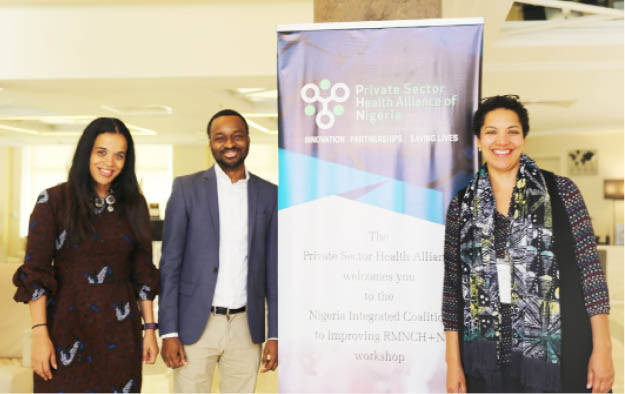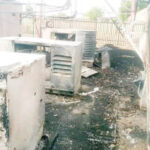
Over the last two decades, the coverage of key Reproductive, Maternal, Neonatal, Child and Adolescent Health (RMNCAH) interventions have stagnated at low levels, despite significant investments in the health system of the country. This lack of progress on services such as family planning, antenatal care, and skilled birth attendance as well as limited coverage of important interventions is further aggravated by poor quality of care.
There is limited coordination and alignment of programmes/fragmentation of local action in Nigeria in spite of the United Nations Every Woman Every Child roadmap aligned with the Sustainable Development Goals (SDGs) for ending all preventable deaths and improving the health and well-being of women, children, and adolescents by 2030.
It is in line with this that the Private Sector Health Alliance of Nigeria (PHN) convened the inaugural Nigerian Integrated Coalition for Improving RMNCAH (NICIR) workshop to build consensus around system gaps and identify opportunities for synergies/collaboration between public and private sector players.
Amongst other things, the coalition seeks to co-design a coherent country owned cross-sectoral intervention package that catalyzes transformative, sustainable solutions to improve reproductive, maternal, neonatal, child and adolescent health outcomes and strengthen private sector engagement for health within the broader Sustainable Development Goals (SDGs) framework.
Speaking at the event, Dr. Muntaqa Umar-Sadiq, CEO, Private Sector Health Alliance of Nigeria (PHN), revealed that Nigeria has had systemic challenges in translating global strategies and plans into local country-led action driven by limited coordination and alignment of programmes/fragmentation of local action.
Dr. Muntaqa said there were unrealised synergies in mobilising domestic resources and private sector capabilities to contribute towards the achievement of Nigeria’s health priorities.
“It is on this premise that there is need to understand public and private sector initiatives towards achievement of the SDGs with the aim of developing a multi-sectoral package of interventions to catalyze transformative solutions to reducing maternal mortality; and systemically advance improvements across the healthcare system building blocks.
“The need for collaboration with cross-sectoral partners is critical to ensure no woman dies giving life,” Dr. Muntaqa explained.
Dr Mary-Ann Etiebet, Executive Director, Merck for Mothers, which is a 10-year $500 million initiative, explained that while Nigeria has a thriving private sector with a growing economy, local businesses are interested and willing to be part of improving health outcomes but efforts were fragmented.
“The time is right to build momentum to strategically accelerate private sector participation for impact in Nigeria. Through this consultative process, the goal of developing a multi-sectoral package of interventions using the SDG framework that can be integrated into current stakeholders’ work and aligns with the national agenda has begun. Added to this is identifying key multi-sectoral stakeholders and their roles as champions to advance progress,” Dr. Etiebet added.
A stakeholder’s panel discussion created an avenue for shared learning and presentation of diverse, but unique perspectives for improving RMNCAH service delivery and outcomes in Nigeria. Worthy of note is the inclusive problem-solving and idea formulation strengthening collaboration, which reflects the partnerships approach of the Nigeria Global Financing Facility (GFF) country platform formed to bring together national leadership, private sector, civil society and stakeholders in RMNCAH to help close the gap for RMNCAH+N.




